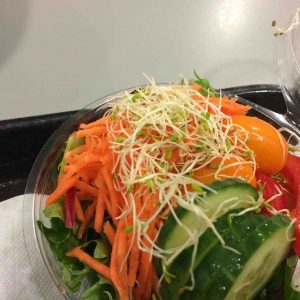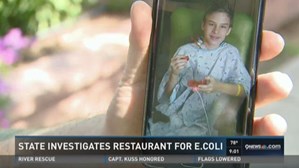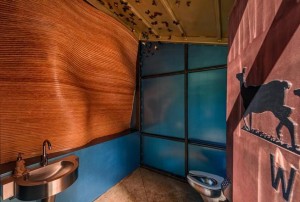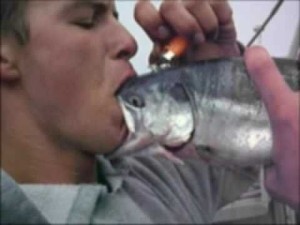The U.S. Centers for Disease Control (CDC), several states, and the U.S. Food and Drug Administration (FDA) investigated a multistate outbreak of Salmonella Reading and Salmonella Abony infections.
 Thirty-six people infected with the outbreak strains of Salmonella Reading or Salmonella Abony were reported from nine states.
Thirty-six people infected with the outbreak strains of Salmonella Reading or Salmonella Abony were reported from nine states.
Seven ill people were hospitalized. No deaths were reported.
Epidemiologic and traceback evidence indicated that alfalfa sprouts supplied by Sprouts Extraordinaire of Denver, Colorado were the likely source of this outbreak.
On August 5, 2016, Sprouts Extraordinaire recalled alfalfa sprout products from the market due to possible Salmonella contamination.
This outbreak appears to be over. However, sprouts are known to cause foodborne illness and outbreaks
Public health investigators used the PulseNet system to identify illnesses that may have been part of this outbreak. PulseNet, coordinated by CDC, is the national subtyping network of public health and food regulatory agency laboratories. PulseNet performs DNA fingerprinting on Salmonella bacteria isolated from ill people by using techniques called pulsed-field gel electrophoresis (PFGE) and whole genome sequencing (WGS). CDC PulseNet manages a national database of these DNA fingerprints to identify possible outbreaks.
Thirty-six people infected with the outbreak strains were reported from nine states. Of those ill people, 30 were infected with Salmonella Reading, 1 was infected with Salmonella Abony, and 5 were infected with both. A list of the states and the number of cases in each can be found on the Case Count Map page.
Illnesses started on dates ranging from May 21, 2016 to September 10, 2016. Ill people range in age from less than 1 year to 72, with a median age of 30. Fifty-six percent of ill people were female. Seven ill people reported being hospitalized, and no deaths were reported.
This outbreak appears to be over. However, sprouts are known to cause foodborne illness and outbreaks.
Epidemiologic and traceback evidence indicated that alfalfa sprouts supplied by Sprouts Extraordinaire of Denver, Colorado were the likely source of this outbreak.
In interviews, ill people answered questions about the foods they ate and other exposures in the week before they became ill. Of the 31 ill people who were interviewed, 18 (58%) reported eating or possibly eating alfalfa sprouts in the week before illness started. This proportion is significantly higher than results from a 2006 survey of healthy people, in which 3% reported eating raw alfalfa sprouts on a sandwich in the week before they were interviewed. Ill people in the current outbreak reported eating raw sprouts on sandwiches from several restaurants.
 Federal, state, and local health and regulatory officials performed a traceback investigation from five restaurants where ill people reported eating alfalfa sprouts. This investigation indicated that Sprouts Extraordinaire supplied alfalfa sprouts to all five of these locations.
Federal, state, and local health and regulatory officials performed a traceback investigation from five restaurants where ill people reported eating alfalfa sprouts. This investigation indicated that Sprouts Extraordinaire supplied alfalfa sprouts to all five of these locations.
On August 5, 2016, Sprouts Extraordinaire recalled its alfalfa sprout products from the market due to possible Salmonella contamination. These products were sold in boxes labeled “5-lb Living Alfalfa.” Read the Advice to Restaurants, Retailers and Consumers.
This outbreak appears to be over. However, sprouts are known to cause foodborne illness and outbreaks. More information about steps to reduce your risk of getting sick from eating sprouts is available on the Advice to Restaurants, Retailers and Consumers page.
At A Glance
Case Count: 36
States: 9
Deaths: 0
Hospitalizations: 7
A table of sprout-related outbreaks is available at: https://barfblog.com/wp-content/uploads/2016/02/Sprout-associated-outbreaks-2-23-16.xlsx
 Dominic Trujillo says he took the video on Sept.16, while waiting for Mt. Fuji Sushi & Hibachi to open. The video appears to show a rat eating food scraps between the glass and a window shade at the restaurant off of East Sixth Avenue in Capitol Hill.
Dominic Trujillo says he took the video on Sept.16, while waiting for Mt. Fuji Sushi & Hibachi to open. The video appears to show a rat eating food scraps between the glass and a window shade at the restaurant off of East Sixth Avenue in Capitol Hill.










